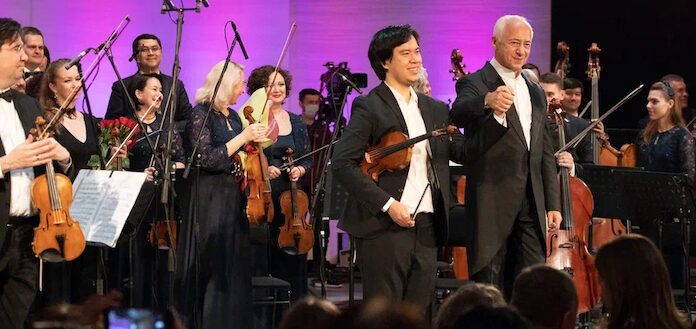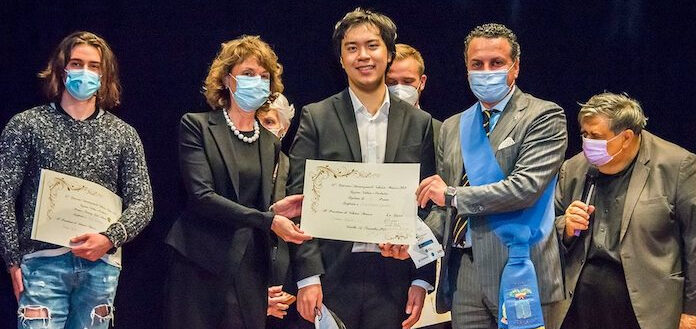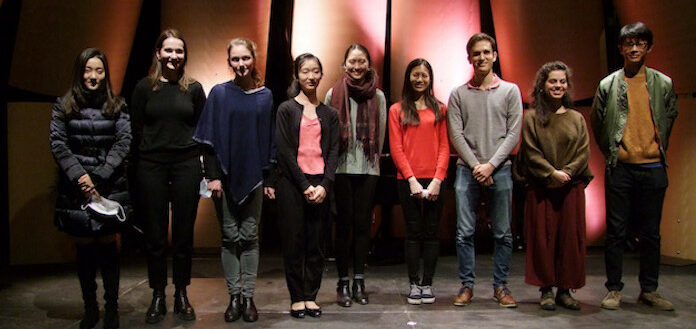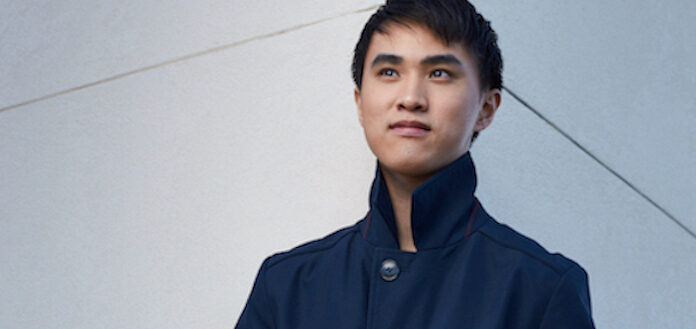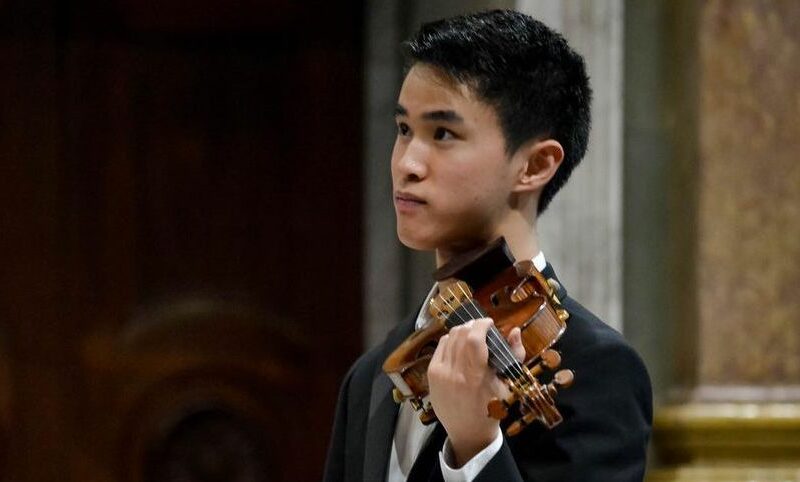VC INTERVIEW | Violinist Elias David Moncado - 2019 Lipiński Competition 1st Prize Winner
VC recently caught up with 2019 Karol Lipiński International Violin Competition 1st Prize Winner, 18-year-old German violinist, Elias David Moncado
The Violin Channel recently caught up with 2019 Karol Lipiński International Violin Competition 1st Prize Winner, 18-year-old German violinist, Elias David Moncado.
A current student of Pierre Amoyal at the Mozarteum Salzburg, Elias is a former major prize winner at the Hindemith, Andrea Postacchini and Telemann International Violin Competitions.
How does it feel to be a 1st prize winner at the Karol Lipinski Competition?
"I feel very honored to be the first grand prize winner of such a prestigious event.
I honestly didn’t expect to win as I walked into the competition as the youngest participant since the age limit is 33 years old, just wanting to enrich my experience and wanting to share my music- making with the people of Poland.
I have been a prizewinner of the Young Paganini competition Legnica and the Telemann competition Poznan in Poland when I was 14 and 15 years old and just loved the generosity and honesty of the Polish people, so I absolutely wanted to return.
On top of that, this year’s competition repertoire seemed appealing and challenging to me, especially given the fact that a Lipinski work was obligatory for every contestant.
I was speechless and even more honored to have received the special award for the best performance of a Lipinski work as a non-Polish participant as part of my additional 10 special prizes.
Throughout the competition, I appreciated the support not only by the audience but also by the whole team of the competition, creating a warm and hearty atmosphere.
I was just overwhelmed by emotions to have won and would like to once again thank my pianist Bartłomiej Wezner, the Torun Symphony Orchestra and the conductor Mariusz Smolij for their incredible support during the competition rounds"
What will be your best long-lasting memory from your time at the competition?
"For me, the most memorable part of this competition was definitely getting to know new friends and colleagues and making music together with wonderful artists.
As always in a competition, you are required to play so many pieces of music in such short time, so it was a great challenge for me to show the diversity of program and style throughout the three competition rounds, sustaining the same high level for all works.
To me, it felt that every competition round arose to a new height, starting from an all-solo first round including a complete Bach Solo Sonata or Partita, a complete Ysaye Solo Sonata and a Paganini Caprice, passing on to a demanding 50-minute semifinal violin and piano recital and culminating in a thrilling final round with a concerto of your choice with orchestra, in which my choice was Bartók ́s Second Violin Concerto.
It was especially challenging to put together the final round concerto in just one rehearsal. Therefore, I was lucky to have already performed this work numerous times, amongst others at the Sendai Violin Competition in Japan, where I recently received the 5th prize in June 2019"
What are the most important lessons you learned from your preparation for this competition?
"I learnt that self-discipline, resilience and hard work are essential for a good preparation for a competition, especially because one cannot know what to expect during the competition.
Another important aspect to consider is that you should never overpractice since it would harm your spontaneity in music making which is inalienable for a good performance.
The key to success is a calm and clever approach to each work, treating it like a newly learnt work every time you play it, never monotonously.
Of course it helps too to have knowledge about the composer and the background behind a specific work.
Often, for me, practicing mentally without the score works best"
What tips and advice do you have for keeping one’s focus on the music even under stressful situations such as a competition?
"I always tell myself to treat every competition round as a concert and I like to forget that you are being judged.
I see competitions as a platform to present and improve your musicianship, stage presence and violinistic abilities.
The ongoing challenge is to perform at your best during the competition round, and I can tell from my own experience so far that it can be quite of a challenge to achieve your maximum during this certain period, not to mention overcoming inner nervousness and doubts before entering the stage.
This can solely be trained by numerous concert and competition experiences.
Never be discouraged by disappointments, this will make you stronger and will help you in pursuing your future goals"
Who have been your most influential mentors and inspirations?
I am most thankful to Prof. Latica Honda-Rosenberg, whom I had the privilege of being her pupil at the Music University in Freiburg and at the University of the Arts Berlin for 10 years since I was 6 years old.
Then, I would like to thank Prof. Zakhar Bron and all his great assistants for their great encouragement and motivation at the Interlaken Classics Academy Interlaken, Switzerland.
Lastly, a huge thank you and gratitude goes to my current teacher, mentor and friend, Prof. Pierre Amoyal at the University Mozarteum Salzburg, Austria, who always believes in me and who brings out my artistic strengths.
He has continuously devoted all of his time and strength to support me"
What important piece of advice have you learned from your mentors that you’d like to pass on?
"Prof. Latica Honda-Rosenberg always told me that I should, once on stage, imagine that I am standing in front of the open sea and playing for the fish.
This has helped me through all these years to simply stay focused on the music and to suppress the exterior around me.
She also advised me on how to efficiently practice slowly.
Prof. Zakhar Bron opened my eyes on connecting every note and phrase and therefore improving the sound projection and phrasing.
Prof. Pierre Amoyal has shown and taught me the diversity and strictness of different styles, vibrato and the professional approach for presentation on stage, enabling the music to flow without unnecessary movements or interruptions.
A very interesting quote by him is that the vibrato should be connected to the heart and shouldn't just be employed without reason"
Away from your instrument, what do you like to do to keep your sanity?
"I have been a fan of civil aviation and aeronautics since I was a child and have a huge passion for collecting true-to-scale model airplanes.
Right now, I have already collected over 280 airplane models. For me, it is a great opportunity to escape the world of music to something completely different.
Apart from that, I love watching documentaries such as National Geographic or BBC Earth. And finally, I love to travel to different countries, exploring new cultures and food"
What does your future hold now? What are your career goals?
"I want to keep on making new accomplishments, learning new repertoire and staying true to myself and going towards the future with an open-minded attitude.
I am excited what will await me in the next years and I hope to continue joining many competitions since I am only 18.
I would love to continue playing many concerts in different countries, therefore maturing as an artist"
april 2024
may 2024


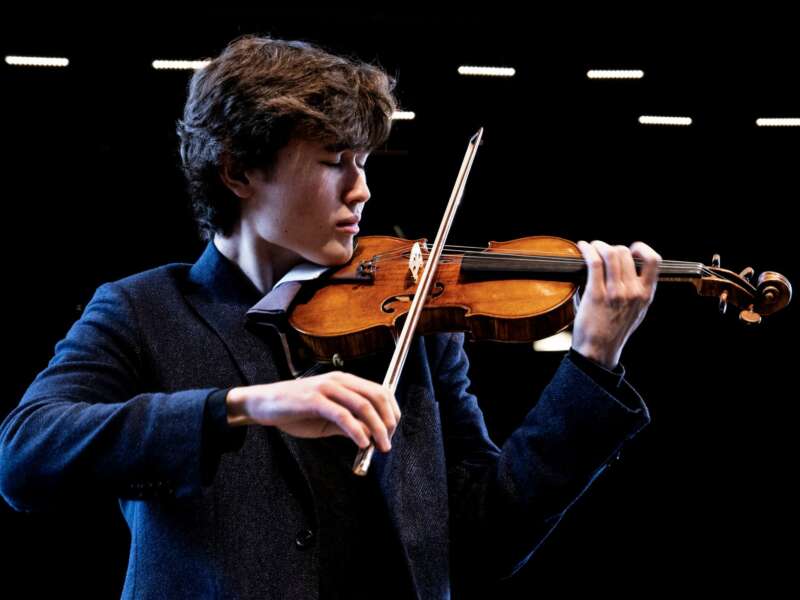



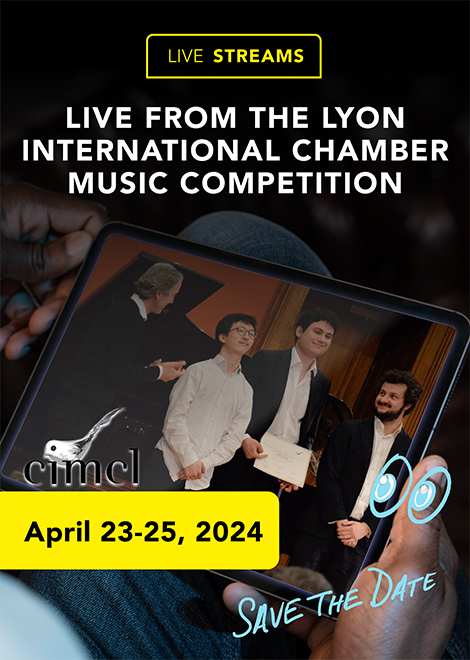
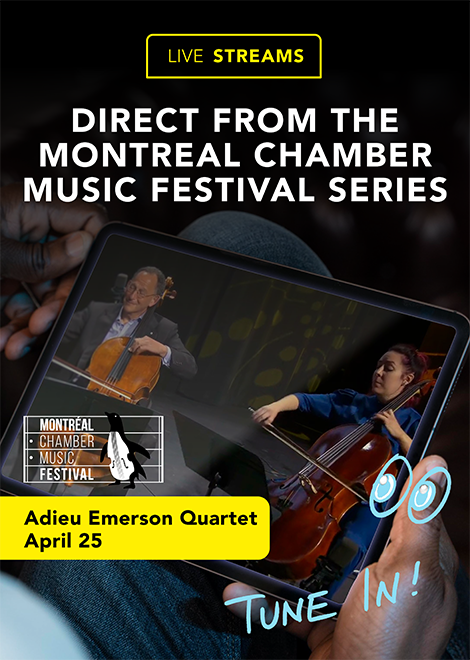
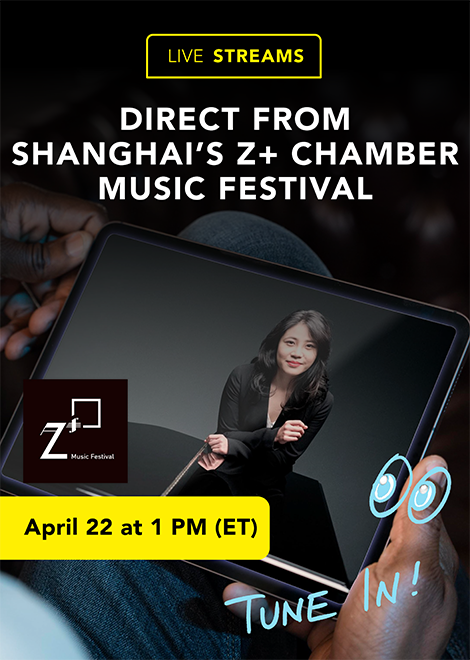
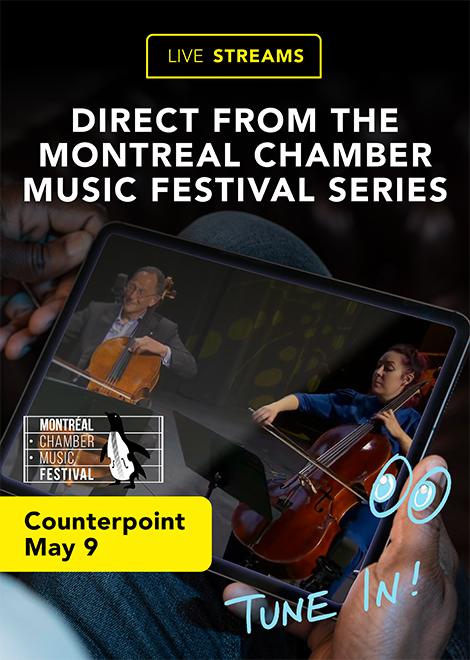















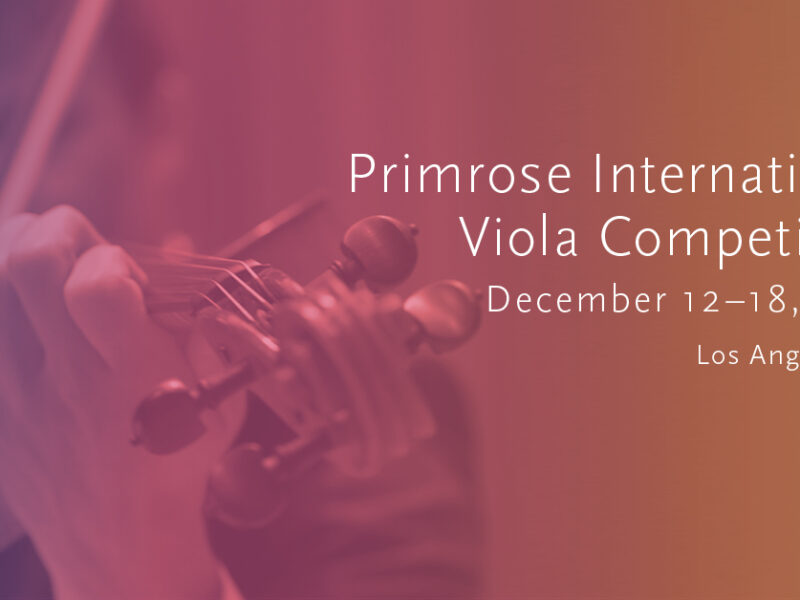
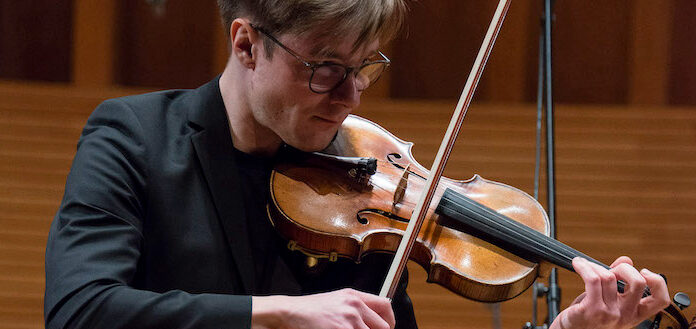
![VC LIVE | North Shore Chamber Music Festival Masterclass: Violinist Ilya Kaler [WATCH] - image attachment](https://www.theviolinchannel.com/wp-content/uploads/2021/12/Ilya-Kaler-800x600.jpeg)
